Audi Q2 vs Nissan Qashqai - Differences and prices compared
Compare performance (300 HP vs 205 HP), boot space and price (24900 £ vs 29600 £ ) at a glance. Find out which car is the better choice for you – Audi Q2 or Nissan Qashqai?
Costs and Efficiency:
Looking at overall running costs, both models reveal some interesting differences in everyday economy.
Audi Q2 has a somewhat advantage in terms of price – it starts at 24900 £ , while the Nissan Qashqai costs 29600 £ . That’s a price difference of around 4748 £.
Fuel consumption also shows a difference: Nissan Qashqai manages with 4.50 L and is therefore barely noticeable more efficient than the Audi Q2 with 4.80 L. The difference is about 0.30 L per 100 km.
Engine and Performance:
Power, torque and acceleration are the classic benchmarks for car enthusiasts – and here, some clear differences start to show.
When it comes to engine power, the Audi Q2 has a distinct edge – offering 300 HP compared to 205 HP. That’s roughly 95 HP more horsepower.
In acceleration from 0 to 100 km/h, the Audi Q2 is convincingly quicker – completing the sprint in 4.90 s, while the Nissan Qashqai takes 7.60 s. That’s about 2.70 s faster.
There’s also a difference in torque: Audi Q2 pulls a bit stronger with 400 Nm compared to 330 Nm. That’s about 70 Nm difference.
Space and Everyday Use:
Beyond pure performance, interior space and usability matter most in daily life. This is where you see which car is more practical and versatile.
Both vehicles offer seating for 5 people.
In curb weight, Audi Q2 is minimal lighter – 1330 kg compared to 1420 kg. The difference is around 90 kg.
In terms of boot space, the Nissan Qashqai offers a bit more room – 504 L compared to 405 L. That’s a difference of about 99 L.
When it comes to payload, Nissan Qashqai barely noticeable takes the win – 520 kg compared to 510 kg. That’s a difference of about 10 kg.
Who wins the race in the data check?
The Audi Q2 is clearly superior overall in the objective data comparison.
This result only shows which model scores more points on paper – not which of the two cars feels right for you.
Costs and Consumption
View detailed analysis
Engine and Performance
View detailed analysis
Dimensions and Body
View detailed analysis
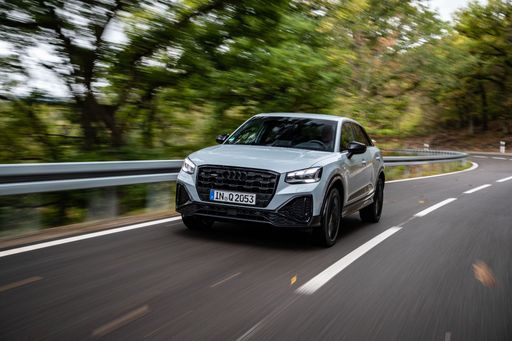
Audi Q2
Audi Q2
The Audi Q2 packs Audi’s premium attitude into a compact, cheeky package that turns city streets into a runway for tasteful design and clever practicality. It’s an easy car to live with thanks to an upscale cabin, composed manners and sprightly handling, and while it won’t satisfy someone chasing sports-car thrills, it’s a smart, stylish pick for buyers who want substance with a wink.
details
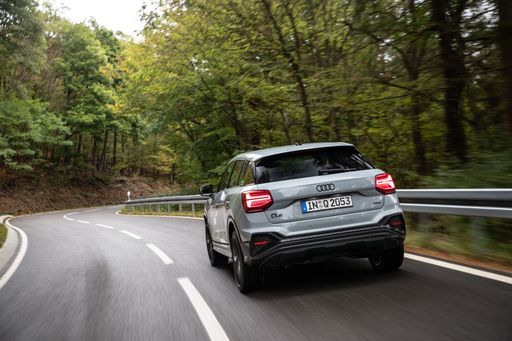
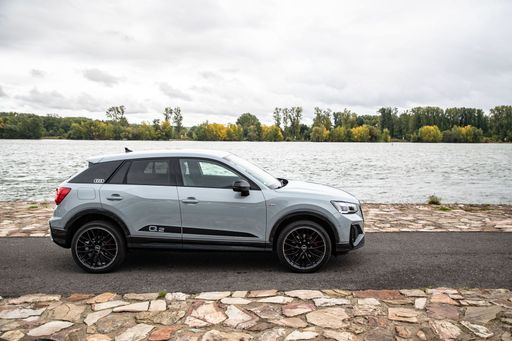
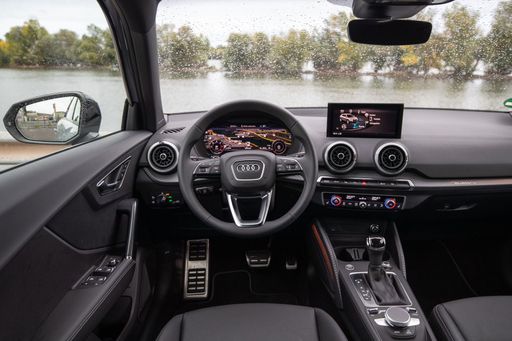
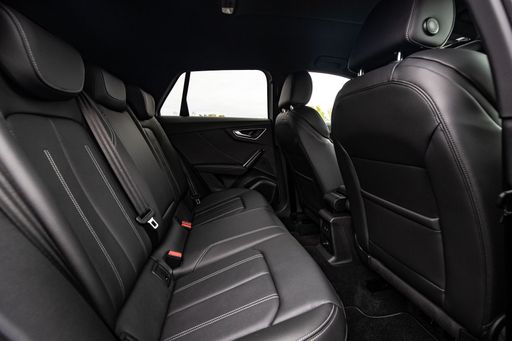
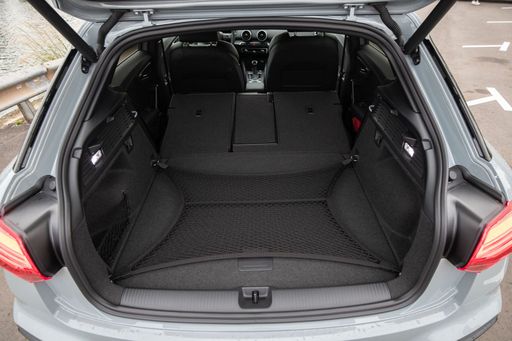
Nissan Qashqai
The Nissan Qashqai blends practical, family-friendly packaging with SUV styling that refuses to shout, making it a sensible and dependable choice for everyday life. It’s comfortable to live with, economical on the road, and neatly equipped enough to feel modern without ever feeling precious — perfect if you want crossover versatility without the drama.
details

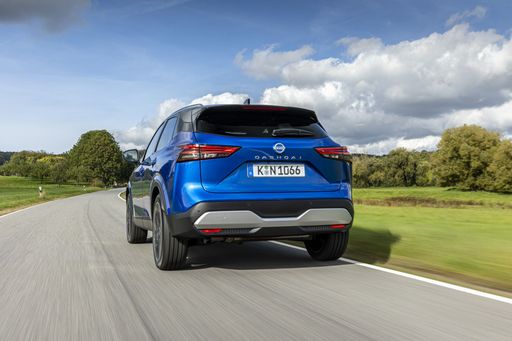


Costs and Consumption |
|
|---|---|
|
Price
24900 - 43600 £
|
Price
29600 - 39900 £
|
|
Consumption L/100km
4.8 - 8.1 L
|
Consumption L/100km
4.5 - 6.8 L
|
|
Consumption kWh/100km
-
|
Consumption kWh/100km
-
|
|
Electric Range
-
|
Electric Range
-
|
|
Battery Capacity
-
|
Battery Capacity
-
|
|
co2
127 - 183 g/km
|
co2
102 - 154 g/km
|
|
Fuel tank capacity
-
|
Fuel tank capacity
55 L
|
Dimensions and Body |
|
|---|---|
|
Body Type
SUV
|
Body Type
SUV
|
|
Seats
5
|
Seats
5
|
|
Doors
-
|
Doors
5
|
|
Curb weight
1330 - 1610 kg
|
Curb weight
1420 - 1665 kg
|
|
Trunk capacity
355 - 405 L
|
Trunk capacity
479 - 504 L
|
|
Length
-
|
Length
4425 mm
|
|
Width
1794 - 1802 mm
|
Width
1835 mm
|
|
Height
-
|
Height
1625 mm
|
|
Max trunk capacity
-
|
Max trunk capacity
1422 - 1447 L
|
|
Payload
450 - 510 kg
|
Payload
466 - 520 kg
|
Engine and Performance |
|
|---|---|
|
Engine Type
Petrol, Diesel
|
Engine Type
Petrol MHEV, Full Hybrid
|
|
Transmission
Manuel, Automatic
|
Transmission
Manuel, Automatic
|
|
Transmission Detail
Manual Gearbox, Dual-Clutch Automatic
|
Transmission Detail
Manual Gearbox, CVT, Reduction Gearbox
|
|
Drive Type
Front-Wheel Drive, All-Wheel Drive
|
Drive Type
Front-Wheel Drive, All-Wheel Drive
|
|
Power HP
116 - 300 HP
|
Power HP
140 - 205 HP
|
|
Acceleration 0-100km/h
4.9 - 10.5 s
|
Acceleration 0-100km/h
7.6 - 10.2 s
|
|
Max Speed
-
|
Max Speed
170 - 206 km/h
|
|
Torque
200 - 400 Nm
|
Torque
240 - 330 Nm
|
|
Number of Cylinders
3 - 4
|
Number of Cylinders
3 - 4
|
|
Power kW
85 - 221 kW
|
Power kW
103 - 151 kW
|
|
Engine capacity
999 - 1984 cm3
|
Engine capacity
1332 - 1498 cm3
|
General |
|
|---|---|
|
Model Year
2025
|
Model Year
2025
|
|
CO2 Efficiency Class
D, F, E, G
|
CO2 Efficiency Class
E, C
|
|
Brand
Audi
|
Brand
Nissan
|
What drivetrain options does the Audi Q2 have?
The Audi Q2 is offered with Front-Wheel Drive or All-Wheel Drive.




